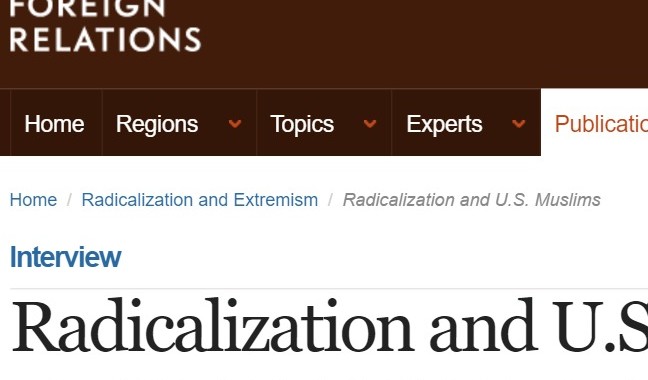Roger Williams University recognized Mark with the Alumnus of the Year Award for 2016
Author Archives: Mark Fallon
HIG Research Committee Meeting
High Value Detainee Interrogation Group (HIG) Research Committee Meeting
High Value Detainee Interrogation Group (HIG) Research Symposium
IACP Conference and IMPACT Workshops
Sunday, October 16: 1:00 PM – 3:00 PM
IACP IMPACT Workshop: The Evolution of Research of Investigative Interviewing to Detect Deception and How Evidence-Based Research is Being Implemented in Law Enforcement and National Security Training Programs
https://ww2.aievolution.com/icp1601/index.cfm?do=ev.viewEv&ev=1235
NIOA Annual Conference
Roger Williams Univ. 2016 Distinguished Alumnus Award
Radicalization and U.S. Muslims
Amid the debate over the threat posed by homegrown Islamic terrorism in the United States, a central aspect is the nature of the Islamic community’s cooperation in counterterrorism efforts. <a href=”http://www.soufangroup.com/team/markfallon/”>Mark Fallon</a>, a thirty-year veteran of federal law enforcement and counterintelligence, says the Muslim community has provided a “significant level of cooperation” in combating terrorism, and worries that the rhetoric from some critics risks alienating a population that “needs to be part of the solution.” He says the process of radicalization, or “violent extremism,” is usually a function of conditions highly personal to the subject, rather than ideological. Fallon sees engagement with the Muslim community as an essential tool in countering violent extremism.
Radicalization seems to have become a politically loaded buzzword. Could you discuss what the concept means and its significance for law enforcement and counterterrorism professionals?
I prefer violent extremism versus radicalization, because every radical isn’t a violent extremist, and every violent extremist may not be a radical. There is a bit of differentiation, as we found in a <a href=”http://www.qiass.org/exclusive.php”>global study</a> of released terrorists. We found that there are some useful tactics people use around the world that are helping to curb the number of candidates going down the path of violent extremism. And as it pertains to the United States, there are a number of things that we can learn from some of these efforts. One strategy is, and it’s something that law enforcement has done for years, community-oriented policing. What police around the globe have learned is that unless you engage the communities and the stakeholders in a coordinated approach to go after crime, and this is crime, your efforts are going to be very challenging. A more aware and educated police officer or agent, who understands and is trained in community-engagement strategies, can certainly go a long way in curbing violent extremism. And actually, the trend of American Muslims engaging in violent extremism is on a downslide right now.
In other words, Muslim radicalization is declining?
The <a href=”http://sanford.duke.edu/centers/tcths/”>Triangle Center on Terrorism and Homeland Security</a>, which is a research center with Duke University and the University of North Carolina, published a February 2011 <a href=”http://sanford.duke.edu/centers/tcths/about/news_release20110202.php”>study on Muslim American terrorism</a> and they saw that in 2009, forty-seven Muslim Americans were arrested for terrorist-related crimes. In 2010, that number dropped more than half, to only twenty. In addition, they found that the Muslim American community is very engaged in trying to help law enforcement thwart terrorism. Tips from the Muslim American community were the source of information that led to the prevention of a potential terrorist plots in forty-eight of the 120 cases involving Muslim Americans that they studied. Those are rather significant statistics. So it’s a mischaracterization to claim the community is not cooperating.
How are we doing as a nation in terms of deploying this community-policing strategy?
The global environment is used to recruit these people, but it’s generally some local condition or individual event in that person’s life that turns them. It wasn’t about ideology; it wasn’t about theology; it was about identity.
It depends on where you look. We studied some of the strategies in the United Kingdom and in Singapore and some other countries. But in the United States, there are efforts underway in the Los Angeles Sheriff’s Department. There are new efforts in Minnesota with al-Shabaab and the Somali crisis. But there are also efforts in Detroit with its highly concentrated Muslim population, as well as in New York with NYPD. What we lack, however, is a comprehensive, coordinated strategy that’s really based on outcomes. So far, most of the strategies we’ve turned over to the enforcement agencies are because of the counterterrorist umbrella. Unfortunately, having been a member of that community, when you have a hammer, everything seems to look like a nail. So I don’t think we can rely exclusively on these enforcement agencies to coordinate these strategies. We need a comprehensive, multi-discipline approach. And globally, that’s where you see more. In the United States, we seem to have limited this to what we’re doing with Homeland Security, the FBI, and others. But if we take a fresh look and seek to understand first, and we seek to enhance the knowledge that we have, we can do much better.
What’s your characterization of <a href=”http://www.nytimes.com/2011/03/11/us/politics/11king.html?_r=1&hp”>Representative Peter King’s hearings on radicalization</a>?
I worry they will have a polarizing effect. Listening to some of the rhetoric, it certainly appears that some of the outcomes may have been pre-judged. I’ve heard King talk about events that people spoke with him about almost a decade ago–and he’s utilizing that to look further. I believe that we need to take a harder look and study this problem. I’m not sure congressional hearings are the best method to do so. I’m afraid it will help polarize the people who are actually assisting law enforcement and who need to be part of the solution. If you look at data from the <a href=”http://www.mpac.org/publications/policy-papers/post-911-terrorism-database.php”>post- 9/11 database</a> of the Muslim Public Affairs Council [a service organization working for the civil rights of Muslim Americans, and the integration of Islam into American pluralism], they found that the Muslim community helped and assisted law enforcement in 75 percent of all al-Qaeda related plots since December 2009–a remarkable number. This study demonstrates there’s a significant level of cooperation out there, and that’s just the cooperation that’s on the record.
Are the factors for radicalization in the United States different from those in other Western countries, or from Muslim countries?
From the standpoint of the human condition, we all have behaviors and we’re all molded by our environment, but the one thing that we found everywhere is that the trigger that turns someone to violence is a very personal one and is usually based on local conditions. The global environment is used to recruit these people, but it’s generally some local condition or individual event in that person’s life that turns them. It wasn’t about ideology; it wasn’t about theology; it was about identity. We talked to a wide spectrum of former terrorists–from members of the IRA to Jemaah Islamiyah and Ali Imron, one of the Bali bombers who killed 204 people. In that wide range of groups, sometimes many decades apart, we still found that the decision to pursue violence is generally based on some local factor.
What’s the relationship between deradicalization and disengagement?
In our study, we looked at what the different disengagement strategies were when someone was released from prison, and we found that people do not necessarily have to fully abandon their beliefs or deradicalize. They can still believe that something should be a certain way as long as they don’t commit violence or criminal acts to further those beliefs. So that’s the real key. Once you have loss of property, loss of life, damage to property, where these people are taking action–that’s where the problem is. So, the key is getting them to disengage from activities, particularly violent activities.
What’s our policy in the United States?
We found that actually talking to the disaffected population, not alienating them, but having a community-oriented approach and giving individuals the ability to actually talk through their issues was very productive.
Our study focused on programs abroad, but the U.S. approach appears to be similar to that of France. France relies more on heavy intelligence, on a law enforcement model. Unfortunately, the United States has not put the type of emphasis that it probably needs to on the preventative end of things. Law enforcement can intervene with “sting” operations and so forth, but that’s when folks are already heading down a path of violence. The concern is that you might alienate some members of that community. The UK and other countries have a different approach. When they see someone heading down this path, they have intervention strategies, they have education strategies; they can introduce a counter-narrative to the propaganda used by recruiters. They take a more comprehensive approach and a more multidiscipline strategy. Countries like Singapore, they engage the family, they engage the community, and they have folks who help counter the religious argument. So depending on where you go, different countries have different strategies. We found that actually talking to the disaffected population, not alienating them, but having a community-oriented approach and giving individuals the ability to actually talk through their issues was very productive.
Where would you like to see disengagement go in the United States?
One of the first things we need to do is enhance our knowledge development at the state and local levels. It’s local police officers who live in these communities and who have a pulse of what’s going on. They’re at the front lines and are the ones the families of extremists are going to come to. In our research, we went into mosques and community centers, and interviewed the people. They all shared the same concerns, whether it’s jobs, education, parenting, and so forth. In some cases, we actually spoke to terrorists, and they indicated a susceptibility to dissuasion from violence if you catch them at the right time. So what we have to implement are comprehensive strategies so we can give members of these communities the ability to divert these hopes when they’re headed down the wrong path, and before it’s too late.
Dick Cheney Was Lying About Torture
It’s official: torture doesn’t work. Waterboarding Khalid Sheikh Mohammed, the mastermind of 9/11, did not in fact “produce the intelligence that allowed us to get Osama bin Laden,” as former Vice President Dick Cheney asserted in 2011. Those are among the central findings of the Senate Intelligence Committee report on CIA interrogation and detention after 9/11.
The report’s executive summary is expected to be released Tuesday. After reviewing thousands of the CIA’s own documents, the committee has concluded that torture was ineffective as an intelligence-gathering technique. Torture produced little information of value, and what little it did produce could’ve been gained through humane, legal methods that uphold American ideals.
I had long since come to that conclusion myself. As special agent in charge of the criminal investigation task force with investigators and intelligence personnel at Guantanamo Bay, Afghanistan, and Iraq, I was privy to the information provided by Khalid Sheik Mohammed. I was aware of no valuable information that came from waterboarding. And the Senate Intelligence Committee—which had access to all CIA documents related to the “enhanced interrogation” program—has concluded that abusive techniques didn’t help the hunt for Bin Laden. Cheney’s claim that the frequent waterboarding of Khalid Sheikh Mohammed “produced phenomenal results for us” is simply false.
The self-defeating stupidity of torture might come as news to Americans who’ve heard again and again from Cheney and other political leaders that torture “worked.” Professional interrogators, however, couldn’t be less surprised. We know that legal, rapport-building interrogation techniques are the best way to obtain intelligence, and that torture tends to solicit unreliable information that sets back investigations.
Yes, torture makes people talk—but what they say is often untrue. Seeking to stop the pain, people subjected to torture tend to say what they believe their interrogators want to hear.
The report is essential because it makes clear the legal, moral, and strategic costs of torture. President Obama and congressional leaders should use this opportunity to push for legislation that solidifies the ban on torture and cruel treatment. While current law prohibits these acts, US officials employed strained legal arguments to authorize abuse.
A law could take various forms: a codification of the president’s 2009 executive order banning torture, for example, or an expansion of the 2005 Detainee Treatment Act so that key protections in it would apply to the CIA as well as the military. However it’s designed, a new law would help the country stay true to its ideals during times of crisis and guard against a return to the “dark side.”
And dark it was. Terms like “waterboarding” and “enhanced interrogation” obscure the brutal, sometimes bloody, reality. It was about the delivery of pain. The U.S. government authorized previously taboo techniques, which—along with a take-the-gloves-off message coming from the top—led to even greater horrors. You can draw a line from the “enhanced interrogation” to the barbarism of Abu Ghraib.
The ostensible purpose of torture was to save lives, but it has had the exact opposite effect. Torture was a PR bonanza for enemies of the United States. It enabled—and, in fact, is still enabling—al Qaeda and its allies to attract more fighters, more sympathizers, and more money.
Some have argued against releasing the report because they predict that it will spark anti-American anger around the world. Such a possibility, however, is an argument not against the kind of transparency and Congressional oversight inherent to a well-functioning democracy; it’s an argument against torture. Indeed, by employing such an argument, people are implicitly acknowledging that torture saps the country’s credibility and threatens its national security.
Over the coming days, you’ll be hearing numerous torture defenders claim it kept Americans safe. Don’t believe them. Many of us charged with the mission of getting information out of terrorists didn’t resort to using torture. Like many Americans, we didn’t want our government to use torture, and we hope it never does again.
Mark Fallon served as an interrogator for more than 30 years, including as a Naval Criminal Investigative Service special agent and within the Department of Homeland Security, as the assistant director for training of the Federal Law Enforcement Training Center.
2016 ILEETA Conference & Expo
Lorem ipsum dolor sit amet, consectetuer adipiscing elit, sed diam nonummy nibh euismod tincidunt ut laoreet dolore magna aliquam erat volutpat. Ut wisi enim ad minim veniam, quis nostrud exerci tation ullamcorper suscipit lobortis nisl ut aliquip ex ea commodo consequat.


